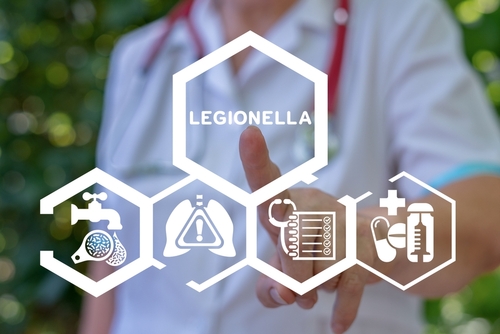Legionella has made its way into the headlines again after being found in a hospital in the East of England. Now, a coroner has warned that more people could die as a result of the deadly bacteria.
The danger posed by the bug should warrant a thorough investigation. However, bosses have advised that there is ‘no official advice’ from the Health Department on testing for Legionella.
Legionella in Hospitals
Many vulnerable patients across the UK could be at risk of ill-health and death, due to exposure to Legionella. A bacteria commonly found in water sources such as:
- Natural lakes and rivers
- Purpose built water systems
- Cooling Towers
- Hot and Cold water systems
- Spas
Yet despite this being common knowledge within some circles, it seems that the memo hasn’t made its way to some parts of the NHS. Meaning that more patients could potentially be at risk of serious harm or death.
The Risk
Legionella bacteria causes Legionellosis. This is a collection of serious diseases that includes Legionnaires’ disease, Pontiac fever, and Lochgoilhead Fever.
Legionnaires disease is categorised as a potentially fatal form of pneumonia that can affect anyone. And, in 2019, 503 people died as a result of Legionella. Worryingly this is in contrast to 2013 figures of 84 deaths. So we can clearly see an increase in these numbers.
However, despite these figures being widely known, according to a high-profile coroner, Health Department guidance remains ‘sketchy’. So with little to no relevant guidance on how to manage Legionella in hospitals, how can patients be protected?
Protecting patients with Legionella Monitoring
In our industry we come across Legionella regularly. So much so that we have a variety of Legionella services at our fingertips. We help many different types of clients with Legionnella monitoring and risk assessment. Which makes us perfectly positioned to help UK hospitals with their Legionella requirements.
Starting with risk assessment for Legionella, you could move on to regular monitoring to make sure you stay on top of it. Moreover, treating Legionella Monitoring as a standard would help large hospitals understand their position with regards to Legionella.
Long term, It’s vital that consistent and effective legionella monitoring is undertaken to ensure patients are not exposed to potentially fatal bacteria. And, owing to the complexity of hospital water systems, you may also need to consider how regularly Legionella Monitoring may need to be performed.
Legionella compliance
Public sector businesses still have a responsibility under UK law to safeguard employees against risk of Legionella. So why doesn’t this extend to patients?
The Health Department and NHS England are responsible for the well being of service users. Furthermore this includes patients as both inpatients and outpatients. However, where guidance for Legionella does exist, you just need to know where to find it!
Got questions?
Our friendly and qualified technicians are on hand to answer any questions you have about Legionella water sampling, monitoring, risk assessment and more! You can call us on 0845 004 2133, or catch us via email at enquiries@safetyfirstgroup.co.uk.
For general enquiries you can also visit our contact page here.


